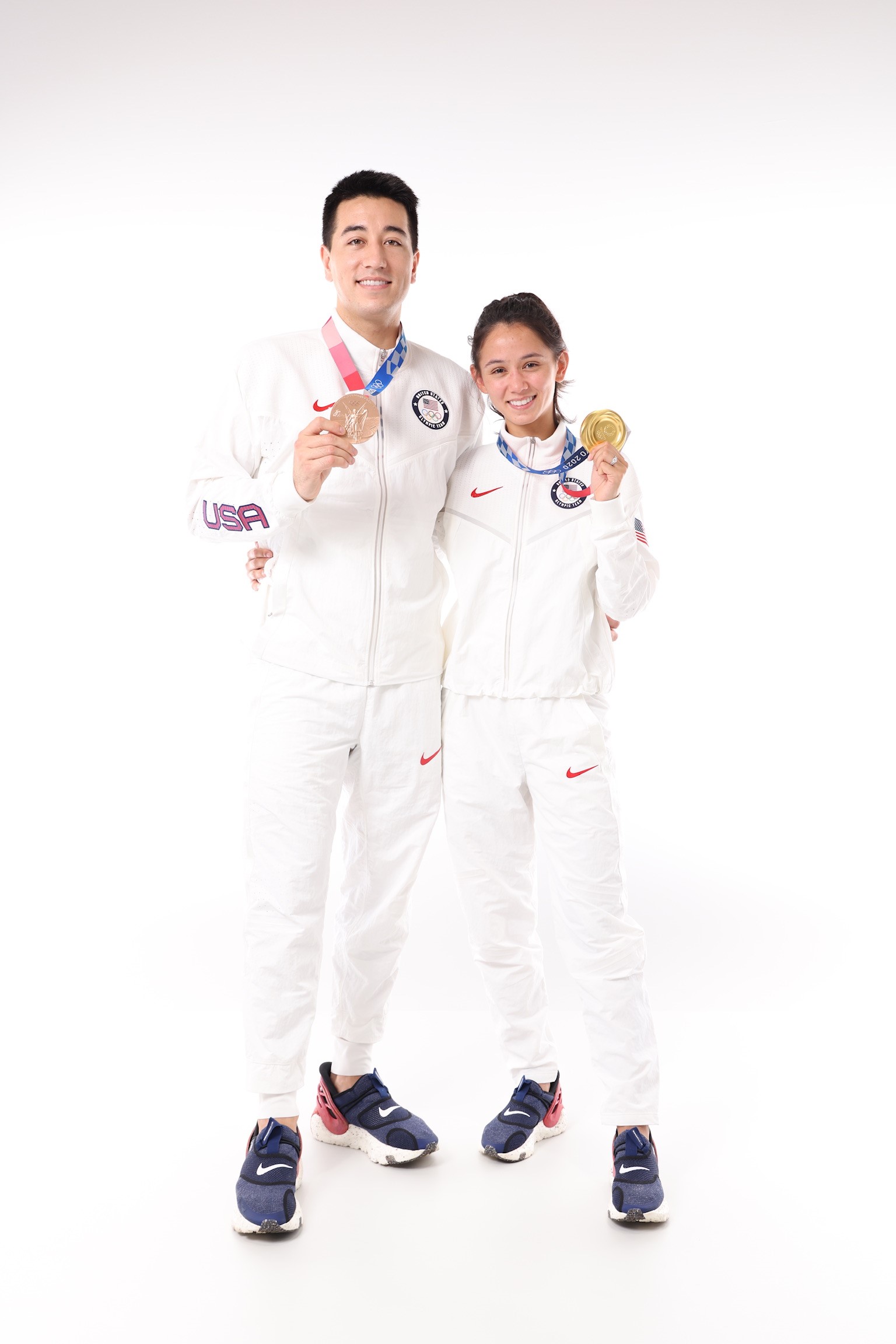Medical Student Lee Kiefer Recaps Her Gold Medal Win in Tokyo
Everything U.S. Olympic fencer Lee Kiefer had been training to achieve came to fruition this summer when she won gold in women’s individual foil at the Tokyo Games. The exhilarating win cemented her into the history books as the first American fencer to medal in the event.
“Luck, preparation, fight – everything came together that one day,” she said.
Kiefer and her husband, U.S. Olympic fencer Gerek Meinhardt, just wrapped up a cross-country trip – San Francisco and New York City – to show their families their hardware. (Meinhardt earned a bronze medal in men’s team foil.)
They have finally returned home to Lexington, Ky., but that doesn’t mean their training has ended. This time around, it’s to achieve a different dream – becoming doctors.
“I definitely need to pick up the books again,” Kiefer said with a laugh. After a whirlwind of a year, she admitted the return will be a challenge, but it’s one she’s well equipped to handle because she understands persistent training leads to results.
Tokyo marked Kiefer’s third Olympic Games. She first qualified for London 2012 at 18 years old as a “young, very excited, and eager” competitor with little expectations. Rio 2016 was next, and though she had strong hopes for a medal, she didn’t reach that goal. But she kept training, and when preparing for Tokyo, she focused on both her mental and physical strength. Because the COVID-19 pandemic postponed the Tokyo Olympic Games, she had more time to reflect.
Third time was, in fact, the charm.
“Sports, like medicine, is a craft where it takes so long to become an expert. It takes so much learning,” Kiefer said. “Once you think you know something, there’s always something else you can learn. I think sports help develop skills and perspective that are definitely applicable to medicine.”
Kiefer is currently two-thirds completed with her third year of medical school at the UK College of Medicine, which includes rotations that need onsite experience. Meanwhile, Meinhardt has been able to remain at “full speed.” He is in his second year, which allows for more remote classwork. (He even started his second year the day after his team event in the Olympics.)
Kiefer will follow a long line of physicians in her family. Her grandmother, her parents, and her siblings all have medical degrees. Her husband is now pursuing one at the same time she is.
As a medical student and Olympian, Kiefer understands the importance of mentorship in helping her meet her goals. Sadly, she lost one of her closest mentors in August. Her longtime coach and family friend, Anthony “Buckie” Leach, died in a motorcycle accident. Kiefer said his passing was a reminder that life is short, and it’s important for people to pursue what they love. For her, this has meant ensuring a balance between her two passions, medicine and fencing.
“We’ve had many tears shed,” she said. “My family has been with me the whole time, and many of them fenced and trained with me. They’ve seen how hard it was to do both school and fencing, and they’ve been on the same emotional roller coaster.”
When Kiefer arrived home in Lexington following her gold medal win, she was greeted with the support of her community, and she received countless supportive messages from her classmates. At times, the Olympic success feels real; other times it’s surreal. But it always feels rewarding.
Just as her win at the Tokyo Olympic Games made every minute of training worth it, so will earning a medical degree.
Until then, it’s back to the books.
